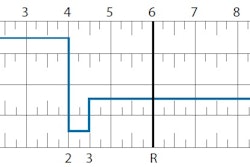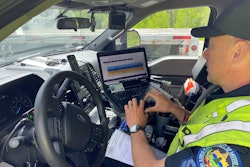Ahead of the implementation deadline for the Federal Motor Carrier Safety Administration's electronic logging device mandate in late 2017, the agency appeared to throw something of a bone to owner-operators and others opposed to the mandate by clarifying that its pre-2000 exemption applied to the engine model year rather than the model year of the truck's chassis. The reasoning behind that had to do in part with the reality of the glider-kit market, then going gangbusters, in which newer chassis were often outfitted with remanufactured pre-2000 engines, in some cases without electronic control modules (ECMs) an ELD could effectively connect to.
Thursday, Sept. 15, FMCSA signaled that it's considering potential changes to that exemption, among other aspects of the ELD rule (including malfunction-related procedures, ELD tech specs and more), with an Advance Notice of Proposed Rulemaking to be published in the Federal Register Friday, Sept. 16.
On the issue of pre-2000 engines being exempt from ELD regs, the FMCSA posited that many trucks with pre-2000 engines do in fact have ECMs that could accommodate an ELD. "Should FMCSA re-evaluate or modify the applicability of the current ELD regulation for rebuilt or remanufactured CMV engines or glider kits?" the agency asks.

As part of the same question, the regulator requested "data regarding the size of the glider kit population utilizing pre-2000 engines," a figure likely to be large among Overdrive's mostly owner-operator audience given the popularity of pre-emissions engines in years leading up to EPA limitations on glider builds.
Other questions the agency is asking in its Federal Register notice include generally those aimed at identifying "ways to improve the clarity of current regulations on the use" of ELDs, and how to address "certain concerns about the technical specifications" raised by the trucking industry.
Specifically, in addition to the questions about the pre-2000 engine exemption, FMCSA also asks for comment on addressing ELD malfunctions; on the process for removing ELD products from FMCSA’s list of certified devices; on technical specifications; and on ELD certification by providers.
The question covering ELD malfunctions also takes a look at paper logs as a backup. Citing 49 CFR 395.34(a) as requiring drivers to switch to paper logs when an ELD malfunctions, but not to switch to paper logs if the ELD malfunctions but still accurately records hours, the FMCSA asks: "Should FMCSA amend carrier and driver responsibilities in 395.34 to clarify when a driver must switch to paper logs?"
This question comes just days after the FMCSA removed the ELDorado ELD from its registry due to issues with the device's display.
The remaining questions focus on removing ELDs from the FMCSA's registry of approved devices when the ELD provider goes out of business and fails to self-revoke, what technical specifications the ELD devices need, and whether or not the FMCSA should come up with a certification process for ELDs beyond the current provider self-certification process.
Among the questions, the FMCSA also asks if the temporary exception "that allowed all motor carriers to configure an ELD with a yard-move mode that does not require a driver to re-input yard-move status every time the tractor is powered off" should be amended or made permanent, and generally how it's worked out so far.
Readers can download the advance draft of the request for comments via this link to a download page and pdf. The ANPRM posted to the federal Regulations.gov site September 16 -- you can read the notice and make a comment officially via this link.
[Related: POLL -- Has the ELD mandate had positive or negative safety effect, if any?]









